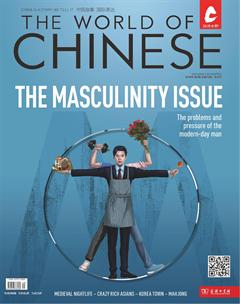UPSTAGED
CAN CHINA BECOME THE NEXT BIG MARKET
for Broadway?
“The magic of Broadway can be found in any country,” Tom Viertel, producer of a Chinese adaptation of The King and I, told CBN Weekly in 2006. Within three years, Viertel promised to “bring the entire Broadway industry to China,” including trained actors, directors, writers, designers, and marketing staff—but his plans were halted by the 2008 recession.
After several long-running shows shuttered on Broadway, though, the industry again looked upon China as an emerging market that could help save musical theater. But while China has become a fairly reliable market for Hollywood, theater audiences dont seem to be singing from the same songbook.
More than a decade after Viertels vow, both domestic productions and touring shows still tend to play in only a handful of major cities, contributing to just two percent of Chinas theatrical box office.
Western-style musical theater arrived in the 1920s with cabarets and musical films like The Jazz Singer, which were associated with Golden Age Hollywood and Shanghai decadence. During the New Culture Movement, writers and intellectuals tried to “improve” traditional Chinese operas with Broadway elements—rambunctious acting, energetic song and dance—but some were more interested in using the end-product as a political vehicle. “Reformed traditional dramas will not become opera, operetta, or revue,” wrote leftist playwright Ouyang Yuqian.
In the 1950s and 60s, different provinces competed to create folk-inspired operatic blockbusters for the masses. Films like Third Sister Liu or The White-Haired Girl were commercial successes as much as revolutionary propaganda. Broadway musicals were absent until 2002, when a production of Les Miserables had a three-week run in Shanghai.
Theres now little cultural memory for the form. “Many people dont know the difference between musicals and opera,” theater producer Tian Yuan told entertainment blog Sansheng. “Its not enough to market something as a good musical…we must describe what its like to experience a musical.” Yet Chinese cinema viewers paid 200 million USD to see La La Land in 2017, twice as much as any Chinese musical to date.
Chinas musical market is also getting a boost from middle class parents and teachers, ever-sensitive to new forms of education for children. In 2015, multiple celebrities supposedly took their children to see a Beijing production of The Phantom of the Opera for “development education.” Some in the industry are hopeful that greater exposure to musicals of any form could cultivate a new generation of actors and audiences.
“A portion of parents register for our classes just to expose their children to English language and American culture,” admits musical theater educator Wang Xiujuan, director of the Beijing Playhouse. “Once theyve been exposed, though, I see greater understanding and appreciation.” – H.L.

